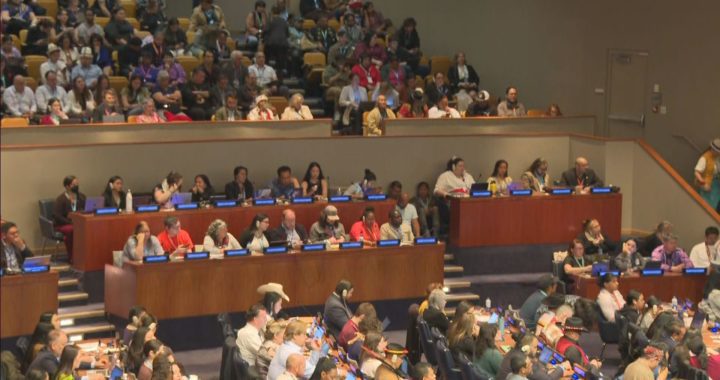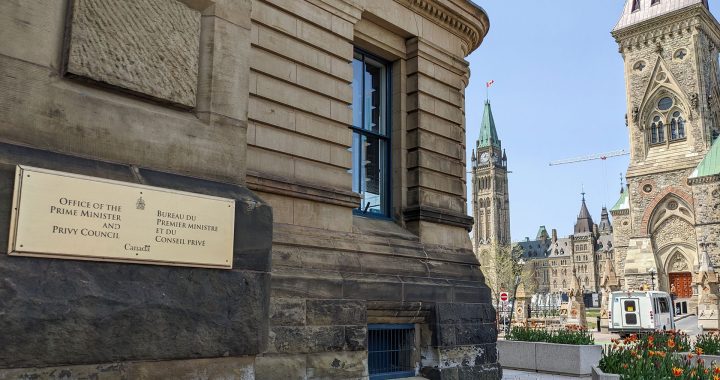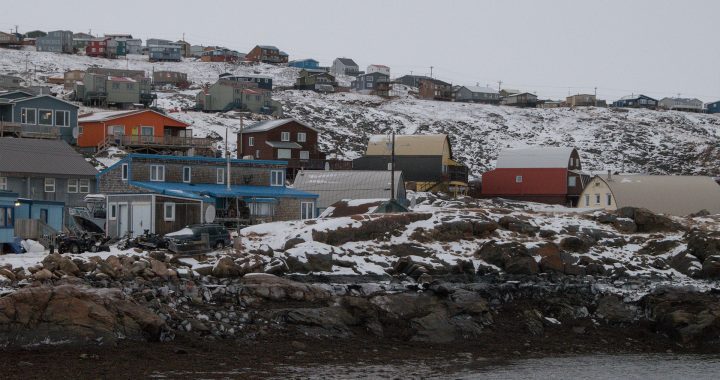Jorge Barrera
APTN National News
With Monday’s announcement on how it plans to implement the UN Declaration on the Rights of Indigenous Peoples (UNDRIP), it appears the Trudeau government is following a playbook laid out in a report by former Assembly of First Nations national chief Phil Fontaine that recommended Ottawa copy a “collaborative consent’” model developed in the Northwest Territories.
Indigenous Affairs Minister Carolyn Bennett is expected to reveal the Trudeau government’s position on UNDRIP during her participation at the United Nations Permanent Forum on Indigenous Issues in New York City Monday, a spokesperson for the minister said.
It remains unclear exactly what the minister plans to say, but speculation has recently swirled the Trudeau government could introduce an UNDRIP-related bill as early as this coming autumn.
In a recent appearance before the Commons committee, Natural Resources Minister Jim Carr said the Trudeau government was planning to implement a “Canadian definition” of UNDRIP.
It appears federal government is seriously eying the NWT’s collaborative consent approach in plans to implement its proposed new nation-to-nation relationship with Indigenous peoples, according to recent statements by Prime Minister Justin Trudeau and a report from Fontaine’s consulting firm Ishkonigan Inc. submitted to Carr last December.
Trudeau recently referred to the NWT’s approach answering a question about First Nations’ “veto” on resource development projects.
“In the NWT they have boards that examine the projects from the very beginning with Indigenous voices,” said Trudeau, in an interview with Vice. “The talk of veto or not veto is highlighting the failure of the process as it exists right now. It shouldn’t ever even come to the decision, is it a veto or not a veto. We should be working together from the very beginning.”
In a report submitted to Carr in December, Fontaine lays out the need for Ottawa to address the UNDRIP principle of “free prior and informed consent” and recommends possible steps for the Trudeau government to follow.
“Until meaningfully addressed, the need for the free, prior, informed consent of Indigenous rights-holders will continue to be the most contentious element of resource development in Canada,” said the report titled, Collaborative Consent, which was also co-authored by lawyer Merrell-Ann Phare and former NWT cabinet minister Michael Miltenberger. “While not widely known, jurisdictions within Canada are already engaged—very successfully—in consent-based discussions with Indigenous peoples. The government of the Northwest Territories is a leader in this area and has been for almost a decade.”
The report then refers to the NWT’s collaborative consent approach which is applied to: development of legislation; development of policies and plans; negotiations regarding ownership and use of lands and waters’ sector specific agreements for resource management; resource revenue sharing agreements.
Fontaine’s report also makes several recommendations to the Trudeau government on how it should implement this new approach. Monday’s scheduled announcement by Bennett checks off one of the boxes listed by the report.
“Canada needs to make a timely demonstration of its commitment to addressing the UNDRIP,” said the report. “And stating its confidence that in so doing, greater prosperity and equity for all, especially in the area of resource development can be achieved.”
The report recommends that in addition to making a public political commitment to “consent-based approaches,” it should also: secure nation-to-nation commitments from Indigenous governments to work by collaborative consent methods; policy statements, guidance documents and directives on achieving consent should be co-developed with Indigenous governments; Canada and Indigenous governments should propose talks with provinces to explore collaborative resource revenue sharing models.
The report
UNDRIP was adopted by the UN General Assembly in 2007. Canada, along with Australia, New Zealand and the U.S. initially voted against the document.
The previous Conservative government announced in 2010 it would endorse UNDRIP as an “aspirational document.”
UNDRIP’s adoption at the international level enshrined rights that “constitution the minimum standards for the survival, dignity and well-being of the Indigenous peoples of the world,” according to the document.
One of UNDRIP’s most well-known concepts is the principle of “free, prior and informed consent.” The principle is repeated in several of the document’s articles, including in a section dealing with resource development.
@JorgeBarrera
–Editor’s note: Indigenous Affairs Minister Carolyn Bennett’s office reversed itself a second time on when the minister intends to reveal the government’s steps regarding UNDRIP. The minister’s office now says it will reveal its next steps Monday.










Finally, my country is taking steps towards honouring it’s word again as well as moving towards the standards of decency that are the privilege of those of us alive to day to be able to aspire towards.
(it’s nice to know that Trudeau is keeping at least one of his promises that many of us on the west coast living within unceded territories were looking forward to, perhaps less so that the timeline places the first likely implementation after key milestones in the energy sector megaprojects that are stomping all over the Constitutionally protected land title rights of First Nations both of Treaty and unceded territories, which might be the only thing that legally could even slow down a provincial government running amok without heeding even the agencies that it originally put in place to keep it from decimating both the environment and the Rule of Law)
(ahem)